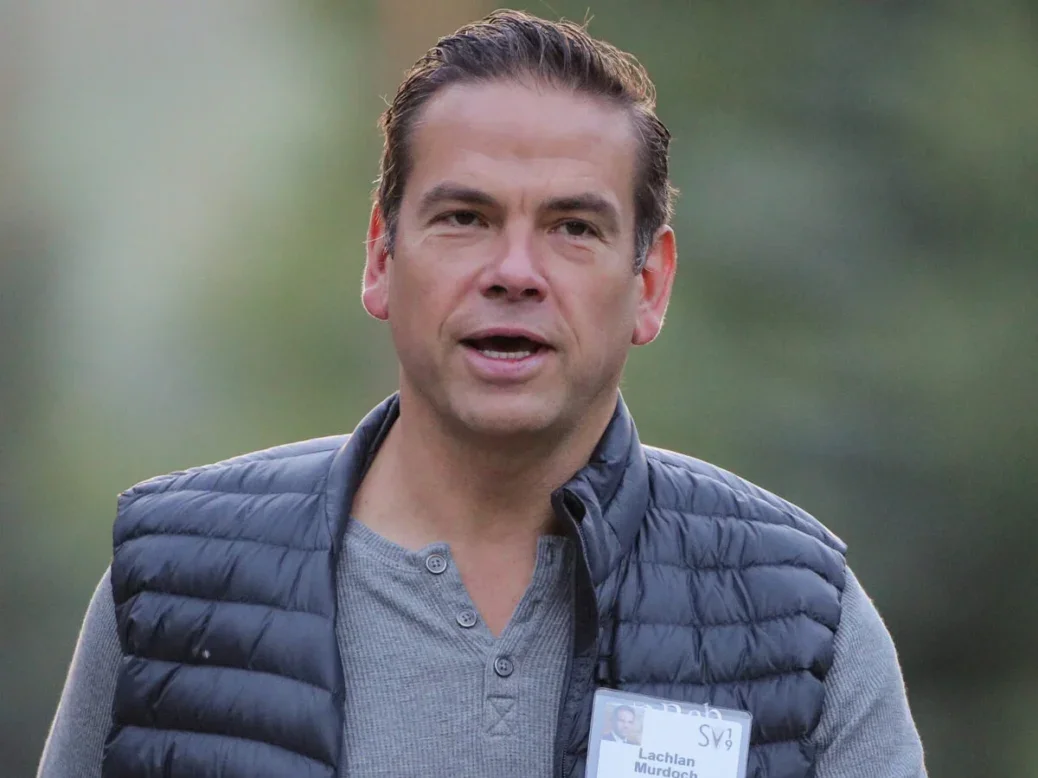
Fox Corp chief executive Lachlan Murdoch complained of the “improper use” of his name by an Australian publisher he is suing for libel, according to newly published court documents.
Murdoch, who is also executive chairman of Fox Corp, claimed too that it was “offensive and extravagant” to compare him to Watergate president Richard Nixon because of the role the publisher claimed he and Fox News played in whipping up the US Capitol insurrection of 6 January 2021.
Media mogul Rupert Murdoch’s eldest son is suing Private Media, the publisher of Australian political website Crikey, plus its political editor Bernard Keane and editor-in-chief Peter Fray, over an article by Keane headlined “Trump is a confirmed unhinged traitor. And Murdoch is his unindicted co-conspirator” and the subsequent republishing and sharing of it.
The article’s only other reference to the Murdochs states: “If Trump ends up in the dock for a variety of crimes committed as president, as he should be, not all his co-conspirators will be there with him. Nixon was famously the ‘unindicted co-conspirator’ in Watergate. The Murdochs and their slew of poisonous Fox News commentators are the unindicted co-conspirators of this continuing crisis.” But Lachlan Murdoch said he was identifiable as the subject because of his job roles and reputation, while later articles and social media posts named him in particular.
Fox Corp owns Fox News, whose popular commentator Tucker Carlson has labelled the House Select Committee hearings about the 6 January 2021 riot in Washington DC as “propaganda”.
In his legal claim, Murdoch said the article’s meaning was that he had illegally conspired with Donald Trump and Fox News commentators to overturn the 2020 US presidential election result, incite an armed mob to march on the Capitol to prevent confirmation of the election outcome, and commit treason and the offence of being a traitor to the US.
The Crikey article was originally published on 29 June but taken down after a legal complaint from Murdoch in the form of an initial concerns notice required under Australian law.
It was then republished on 15 August, and remains live, “as part of a series about this legal threat and about how media power works in Australia”, Crikey said.
Although Crikey is a subscription-based website, the article was made free to read both times. According to Murdoch’s legal filing, Crikey has an audience of at least 175,000 unique readers each month and at least 15,000 paying subscribers.
On 14 August – the day before the piece was reposted – the Sydney Morning Herald published an article about Murdoch’s legal threat to Crikey, which he said in his legal claim was “caused and/or contributed to” by Private Media either directly or through an agent to publicise the libel threat against them.
The article quoted Fray as saying: “Crikey and its publisher Private Media are sick of being intimidated by Lachlan Murdoch.”
A week later, Private Media published an advert on page seven of the New York Times urging Murdoch to sue for defamation so they “can test this important issue of freedom of public interest journalism in a courtroom”.
That day, the Crikey homepage was dominated by articles about Murdoch including the original piece, a new one by Keane headlined “Why I’d write an even stronger story today about Murdoch, Fox and Trump” and another entitled “The power of one: how Lachlan Murdoch turned nuclear over a legitimate piece of journalism”. The site also published Murdoch’s legal letters to date, in which he had asked for an apology, in full and publicised its subscriptions.
In his statement of claim filed on 24 August but published by the court on 5 September, Murdoch accused Private Media of a “disingenuous scheme… to conduct a campaign of self-promotion… with the intention of harming” him with the advert, publication of further articles, and media campaign around them.
He said the NYT advert in particular sought to “humiliate and harm” him while the publication of his legal letters was to “hurt and harm” him.
And he said it was false to suggest he was being unreasonable in his conduct towards Private Media as he had told them all he wanted was an apology to resolve the matter.
It was wrong to re-promote the original article, he said, as an example of “brave” or “fearless” journalism in order to advertise Crikey’s subscriptions offering.
Murdoch said his “hurt and harm” had been exacerbated by the journalists’ failure to contact him prior to the publication of the original article, and the “baselessness” of the allegations it contained considering he was not mentioned in the House Select Committee evidence.
He said the references to him in the article were “gratuitous” and the use of his name “improper”, while he also complained about the “offensive and extravagant language used… including by comparing his alleged criminality to Richard Nixon’s conduct” in the Watergate scandal.
Crikey’s Fray said in a statement after Murdoch’s writ was filed: “Crikey stands by its story and we look forward to defending our independent public interest journalism in court against the considerable resources of Lachlan Murdoch.
“We are determined to fight for the integrity and importance of diverse independent media in Australian democracy.”
Press Gazette is hosting the Future of Media Technology Conference. For more information, visit NSMG.live
Picture: Reuters/Brendan McDermid
Email pged@pressgazette.co.uk to point out mistakes, provide story tips or send in a letter for publication on our "Letters Page" blog
